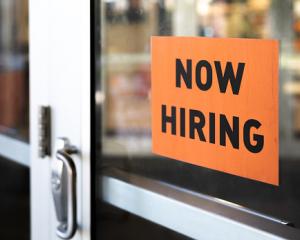The New Zealand dollar bounded above US76c early today as it gained broadly, even regaining ground initially lost to another strong overnight performer, the British pound.
By 8am the NZ dollar was buying US76.21c, having peaked an hour earlier at a 15-month high near US76.35c.
It climbed from around US74.70c about 3pm yesterday to the US75.70c level about 9pm, after which it fell away before starting to climb again from 1am.
ANZ bank said momentum continued overnight after comments from Reserve Bank governor Alan Bollard that a higher NZ dollar was not necessarily an impediment to raising interest rates provided the kiwi with a "big kick" yesterday.
But ANZ said it appeared the market was reading too much into the comments.
"Rather than a sign that rate hikes are just around the corner, we suspect the comments are more an acknowledgement that the RBNZ can do little about the high levels of the kiwi, and with rate hikes already priced in, actually delivering one shouldn't actually impact the currency."
Overnight, the NZ dollar added to gains as recent sellers reversed their positions and "licked their wounds", ANZ said.
The NZ dollar peaked around 7am at a year-high 69.47 yen, and at a 17-month high 0.5075 euro.
Against the Australian dollar the kiwi reached its highest level in nearly a fortnight at A81.92c.
The kiwi sunk against sterling overnight from the 46p level to around 45.30p but then made up just about all the lost ground.
The trade weighted index was 67.89 at 8am from 67.09 at 5pm yesterday.
The US dollar touched a one-month low against sterling and the euro broke above the $US1.50 level for the first time in 14 months as expectations for low US interest rates weighed on the greenback.
Sterling rose after minutes from a Bank of England meeting suggested officials are not ready to expand an emergency asset buying programme and had "differences of view" on inflation.
Analysts said that suggests central banks outside the US are considering winding down programmes that have flooded their economies with money.
If the US Federal Reserve doesn't follow suit and holds interest rates at record lows, that would diminish investor desire to hold US dollars.












